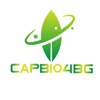Plant Biochemistry
|
Course title: |
Plant Biochemistry |
|
|
Course code: |
AFPLB |
|
|
ECTS: |
5 |
|
|
In-class hours |
Lectures: |
30 |
|
Laboratory work/Tutorials: |
30 |
|
|
Self-preparation hours |
Practical training: |
- |
|
Other: |
65 |
|
|
Total hours: |
125 |
|
|
Language: |
English |
|
|
Study cycle: |
Bachelor |
|
|
Semester: |
Winter |
|
|
Faculty: |
Faculty of Agronomy |
|
|
Name of the lecturer(s): |
Assoc. Prof. Lyubka Koleva, PhD |
|
|
Mode of delivery: |
Face-to-face, distance learning, combination of both |
|
|
Prerequisites: |
- |
|
|
Learning outcomes of the course unit: |
Biochemistry is fundamental biological science. The main objective of the biochemistry of plants is to reveal the nature of biochemical processes in plant organisms and the chemical composition and properties of substances by students to provide knowledge of basic biochemical patterns. The achievements of modern biochemistry of plants are the basis of a number of biological sciences such as physiology, genetics, agrochemistry, phytopathology, selection and more. Modern biochemistry considered issues related to both theoretical and practical importance. The course in plant biochemistry is taught basic principles of metabolism in plant organisms, and some processes that apply to other living systems. Attention is paid to issues related to enzymatic catalysis, with energetic transformations and some biochemical processes and reactions that underlie the metabolism of the most important substances in the cell. Some specific issues of the biochemistry of plants as the mechanisms of reduction of carbon dioxide in photosynthesis, C4-type of assimilation, photorespiration, and biological nitrogen fixation are discussed. The program material is grouped by themes that are logically related, depend on one another and follow one after another. There is no repetition or duplication with other disciplines. Due to the small workload of the course, many questions only pose problems and students can through self-training to deepen their knowledge in some sections of plant biochemistry. |
|
|
Course contents: |
Lectures: 1. Biocatalysis. Enzymes. (4 h) 2. Anabolic and catabolic metabolic processes. Biochemical energetic. (5 h) 3. Metabolism of carbohydrates. (6 h) 4. Metabolism of organic acids. (2 h) 5. Metabolism of lipids. (2 h) 6. Metabolism of amino acids. (3 h) 7. Metabolism of nucleic acids and synthesis of proteins. (6 h) 8. Integration and regulation of biochemical processes. (2 h)
Laboratory Practical Work: 1. Enzymes – properties and activity. (4 h) 2. Enzyme reaction kinetics. (4 h) 3. Vitamins – qualitative and quantitative determination (4 h) 4. Carbohydrates. Qualitative reactions for monocarbohydrates. Quantitative determination of direct reducing sugars. (4 h) 5. Proteins – Biological functions and structures. Quantitative determination of proteins (methods: Keldal and spectrophotometricaly) (4 h) 6. Proteins – Biological functions and structures. Qualitative reactions for amino acids (4 h) 7. Lipids – properties. Saponifiable and nonsaponifiable lipids (4h) 8. Examination (2 h) |
|
|
Recommended or required reading: |
Biochemistry – Mathews, Van Holde, Ahern. 3rd ed. Biochemistry - Lehninger |
|
|
Planned learning activities and teaching methods: |
The course includes the following mandatory components: lectures, laboratory work, seminars, discussion, as well as student self-preparation. The lectures are delivered by means of PowerPoint presentations. |
|
|
Assessment methods and criteria: |
Exercises evaluation, written exam |
|
 - Events on the occasion of the 80th anniversary of AU
- Events on the occasion of the 80th anniversary of AU











